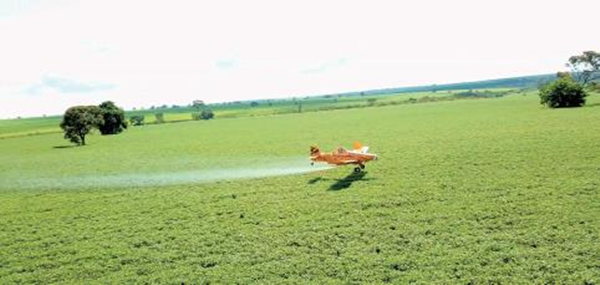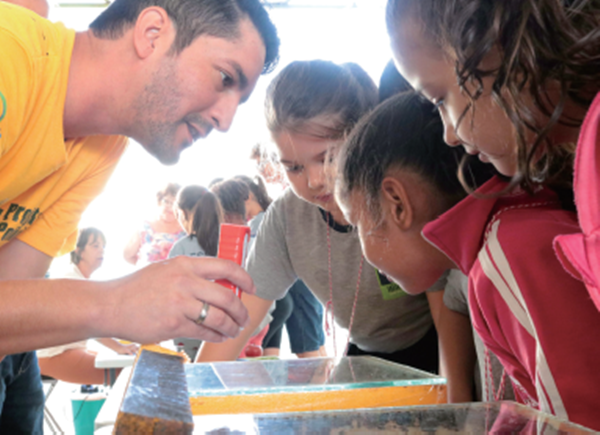Wooden beehives painted in white, black and brown are quite eye-catching on farm lands surrounding a sugarcane garden in Catanduva in Sao Paulo State in Brazil. Thousands of bees are humming around the hive entrances. People might not be able to imagine what crucial roles the bees have been playing in local biodiversity protection. They help improve output of some crops by pollination, leading to regeneration of the forest and a balanced eco-system.
To explore methods to protect the bees, COFCO International, a subsidiary of COFCO Corporation (COFCO), launched a survey campaign in nearby areas of the sugarcane garden in 2016, intending to research agricultural activities' impacts on bee's habitats in the sugarcane garden.
Matheus Tripodi, the agricultural inspector of COFCO International's Brazil branch, explained that "The survey campaign intends to prove that a healthy eco-system can be created while agricultural activities are carried out." He added that "Together with the local bee keepers, we find practical ways to protect the bees' habitat."
After the survey campaign, COFCO International launched a pollination program based on the satellite positioning system, which draws a map of the beehives and foraging zones of the bees where pesticide is banned to protect the bees.
At present, the program has been expanded to 58 bee farms in 13 cities, benefiting more than 5,000 hives. The mode has also been used in some business of the company in other states, which has attracted attention from the international community.
How to accurately delimit bees' territory to avoid pesticide's reach is the top issue. With the support of local bee keepers, the technical team of COFCO International drew the areas of the hives and the bees' foraging zone and input the relevant information into a high-precision electronic map. The e-map is connected with the satellite positioning system, making it possible to automatically turn off the sprayer when the pesticide unmanned aerial vehicle flies over the selected areas based on the space-based remote-control system.
Within the pesticide-free zone, bio-pesticide methods are used. For instance, the company will release some hornets by UAVs to kill sugarcane borer caterpillars.

A UAV sprays pesticide in an area without bees that has been identified by the e-map and the satellite positioning system. [Photo provided to sasac.gov.cn]
The satellite positioning system-based accurate pesticide spray pollination program has helped local honey output improve by 50 percent. Mauricio Rodrigues, a bee keeper who live near the sugar and ethanol processing plant, said that "Since the pollination program was launched, the death rate of my bees went down to nearly zero."
In addition to raising their numbers through protection of the bees' territory, the program also includes providing professional training to local bee keepers to improve honey production. The result was an increase in bee keepers' income and improvement in their living quality.
In 2019, the pollination program was promoted in the public schools neighboring the sugarcane garden, publicizing bee-related knowledge to the young generation. At the class, pupils had close contact with stingless bees and tried various kinds of honey. They learned the importance of bees to the food industry and the subtle balance of the eco-system on the Earth.
A group of "Bee Hotels" was designed and built for the solitary bees in urban parks and campus based on the pollination program and another art program named "Bee Care".
So far, the pollination program has been promoted in other three sugarcane gardens in Sao Paulo operated by COFCO International. The Brazilian Sugarcane Industry Association (UNICA) has showed its support to the program and hopes to promote the mode to other sugarcane production areas in other states in Brazil.

COFCO International joins hand with local children education organizations and gives lectures on bee-related knowledge to more than 500 pupils in four cities. [Photo provided to sasac.gov.cn]
During the United Nations Biodiversity Conference in 2018, COFCO International's pollination program was introduced at a sub-forum held in Egypt themed on biodiversity protection.
(Executive editor: Li Zhiyong)